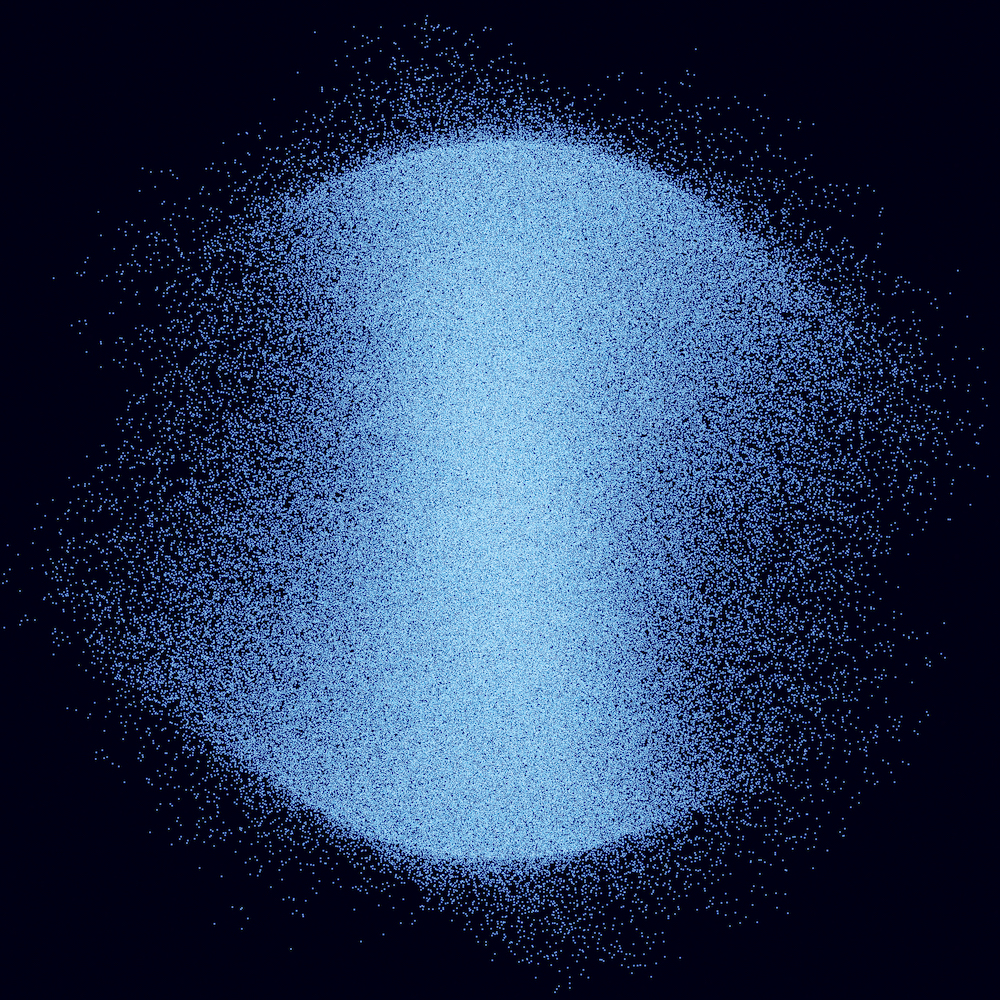Let’s just address the elephant in the room right away. The new Deafheaven record, Infinite Granite, is indubitably going to be their most divisive record yet. That’s even after continuously dropping divisive records for the last decade. Such is the protocol for heavy bands who move gradually towards the softer vocal performances – like a twisted take on It’s a Wonderful Life, “every time a metal band sings clearly, a longhaired basement dweller cries,” or something like that. This isn’t new though, metalheads have been balking at progression for decades.
Back in 1991, Metallica dropped their mainstream breakthrough Metallica (aka The Black Album) and dirty male divorcees sleeping on their parents’ couches collectively shit in their pants out of complete dismay. They took to the streets, since Twitter wasn’t around then, and demanded Metallica not suck anymore – that never happened, by the way, they got much worse even – and so a tradition was established. Other bands have felt the wrath of the virginal metalhead – in 2011, Swedish prog-metal band Opeth drew the ire of many for abandoning ‘death growls’ in favor of melody on Heritage, and it only got worse from there when 2014’s Pale Communion was borderline cock-rock. Well, while Deafheaven can now join that illustrious crew, Infinite Granite isn’t as drastic a departure as those.
For four albums (and a few extras) now, the California quintet have screamed their way to success thanks to the anti-croon of George Clarke. This time though, Deafheaven have approached their fifth album in just over 10 years by subverting expectations and limiting the number of snarls that Clarke doles out. Infinite Granite doesn’t do away with the harsher vocals, but the cleaner sets take center stage now, something that was hinted at on 2018’s Ordinary Corrupt Human Love, in tracks like “You Without End” and “Night Poeple”. The groundwork was laid back then, Deafheaven are now simply keeping their promise.
Infinite Granite represents a balance, and while it tips the scales in favor of melodic singing, it doesn’t skimp on the powerfully electric performances by Deafheaven. Even if it’s less metal and more gaze, Kerry McCoy’s axe wielding is still breathtaking, especially on the album’s more intricate melodies like opener “Shellstar”, which starts in a dream state but escalates into a surrealistically gaze blitz. Deafheaven are known for extravagance, but nothing before Infinite Granite was created with such a widely accessible tone. The radio-friendly single “In Blur” doesn’t even sound like Deafheaven at first, but the instrumental passages are unmistakably them.
Shoegaze may be a mostly dead genre in 2021 – there are still countless bands trying to recreate the thrill of the ’91 UK scene, but for most of the 21st century the genre has seen minor successes, a lot of that stemming from nostalgic acts like Slowdive returning for a victory lap. But Deafheaven are not as purist as Slowdive, even if Clarke sometimes emulates Neil Halstead in his singing. Instead, they’ve carved out their own niche in the genre and have pumped a bit more excitement into the fold, cementing just how unpredictable they’ve become. Case in point, “Villain” pivoting towards vocal shredding at its crescendo – not a hail Mary, but instead a well-timed howl that keeps listeners on their toes.
Musically, it leans away from black metal, and more towards that unfortunately named genre ‘blackgaze’, something the band has always shied away from associating with. Their 2013 breakthrough Sunbather was championed as a resurrection of the genre by many, most of which were unwarranted since the average My Bloody Valentine fan can’t scream too well when they’re gazing at their shoes. Regardless, Sunbather was a landmark album for both shoegaze and black metal genres, and it established Deafheaven as the premier – perhaps only – act that successfully melded both skillsets, something they continued to develop on succeeding albums. It was always destined to come to an end though, the vocal cords can only sustain so much intense vibrations before permanent damage to the larynx evolves.
As a result, the transition to a more harmonious vocal style is a welcome change of pace for Deafheaven. Clarke’s range is now on display more tunefully, he can still capture audiences, he’ll just do it now with his undeniably saccharine voice, as heard on “The Gnashing”. Now concert goers won’t be reaching for some Ricolas after the show because of screaming so hard – they’ll still do it, but because they sang rather than screeched at each other. This gravitational shift in aesthetic is a shining example of how versatile Clarke’s voice is, especially in Infinite Granite‘s closer, “Mombasa”, which features a blood-chilling shriek that caps off a magnetic finale.
Last December the band released a live album, 10 Years Gone, which featured the set they intended to play on tour last year. Recording these live renditions (with individuals who weren’t even part of the band back then) helped to uncover new appreciation for what they’d done for the last decade and see all their songs from a different angle and under a new light. This moment of clarity influenced the band’s next step and, as a result, Infinite Granite feels less like an abandonment, and more like a new era – a rebirth that fans can either jump on or off for.

